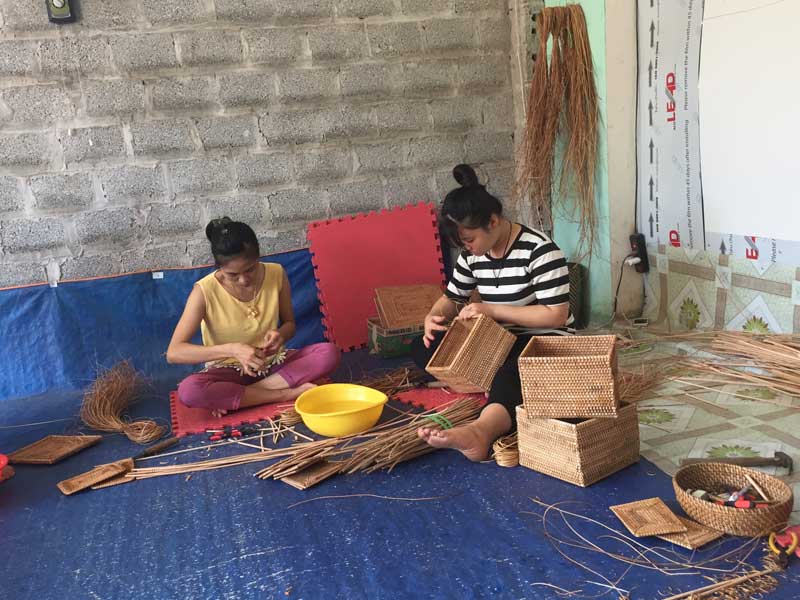



The production model of rattan and bamboo
knitting of Mr. Vuong Van Tuan (Ha village, Phu Lai commune)
Ms. Bui Thi Nga, the Chairman of
Farmers Association of Yen Thuy district confirmed: Up to now, hundreds of
excellent production and business examples have emerged with the movement for
farmers to emulate good production and business, collaborating to help each
other to enrich and reduce poverty in the area. Green grapefruit, red
grapefruit, safe vegetables or raising cattle, goats, mountainous chickens,
local pigs become the main crops and livestock to bring prosperity to the
households. The areas developing mountainous chickens raising, local pigs,
goats and cow husbandry are Lac Thinh, Phu Lai and Huu Loi communes. The
average income of typical farmer households is 500-600 million VND a year,
there are households still reaching nearly 1 billion VND per year. In addition,
the model of planting red grapefruits and green grapefruits are focused in the
communes of Lac Hung, Lac Luong and Hang Tram town, which brings high economic
efficiency. In which, there are typical farmer households such as Mr. Ta Huy
Hau - Zone 2, Hang Tram Town; Mr. Vu Xuan Oanh - Dai Dong village, Ngoc Luong
commune, etc.
With the motto of "Do not stop
innovating in the direction" and "Considering the grassroots as the
field of operation", all levels of Yen Thuy District Farmers' Associations
has made positive efforts in organizing the implementation. As a result, the
movement became more and more formal, developing in both breadth and depth.
During the period of 2012 - 2018, over 25,800 households already registered to
be members, of which the number of households achieving good productionand
business levels at all levels accounts for nearly 50% of the total registered
households. In 2017, there are 3,621 households in the district achieved good
results, of which 6 are at the State level, 122 are at the provincial level,
768 are at the district level and 2,707 are at the grassroots level.